FORT SAM HOUSTON, Texas - A study to measure the effectiveness of animal assisted therapy using dogs is in the final stages at the Warrior Transition Battalion at Brooke Army Medical Center.
Researchers with the Army Baylor Doctor of Science in Occupational Therapy program have spent the past few months focused on improving re-integration of Warriors in Transition by studying the use of animal assisted therapy in an occupational therapy environment.
"If we can present a case with data as to the usefulness of dogs in elevating Soldiers' moods, building confidence and reducing stress that then translate into a better, quicker transition...that is very powerful," said Maj. Carol Haertlein Sells, primary investigator and professor with the Army Baylor Doctor of Science in Occupational Therapy Program.
The study was designed to augment the Warrior in Transition Advancement Program. Warriors are enrolled in WINTAP as part of their occupational therapy and take a series of classes focused on further developing skills to manage stress and anger; build communication skills and relationships; maintain healthy living and increase organization and time management. By augmenting the current occupational therapy life skills classes with dogs, researchers will be able to provide data that will possibly add to the current success with WINTAP.
"We were doing a good job with the skills classes and everybody knows that there is a certain therapeutic value to having a pet around...so what if we put the two together," said Dr. Sheri Michel, chief occupational therapist, Warrior Transition Battalion, BAMC. "That's really what we're doing with the program."
Wounded Warriors participating in the study attended their regular life skills classes and an additional 30 minutes with a certified therapy dog and their handler - known as pet teams. During the sessions the Wounded Warriors learned to train the dog in obedience tasks, and the rest of the session was spent on "playful interaction."
Sgt. Jesse R. Duenes, WTB, said that he enjoys the program because it gives him an opportunity to heal in a way that is different from his normal routine.
"It's out of the norm of going to appointments and sitting and talking about stuff," said Duenes. The potential benefits include decreased stress and anxiety; improved mood state and overall health and wellness; and increased confidence.
Some of the Warriors participating in the study already feel like they are experiencing benefits from spending time with the dogs.
"It's helped me quite a bit. They do change your life, for me... it's knowing that the dog doesn't judge you," said Duenes.
For other participants it's about getting over fears and moving forward with their healing.
"I had a bad experience with a German Shepherd, so this is helping me get over that fear," said Spc. Richard Bonnell, WTB. "I like being out here. It gets your mind off of whatever else is going on."
While the results of the study won't be ready for a few months, investigators are hopeful the study will provide data that will add to current efforts and ultimately change Soldiers' lives.
"We are optimistic that some of our outcome measures will show that they have made a difference in Soldiers' lives," said Haertlein Sells.
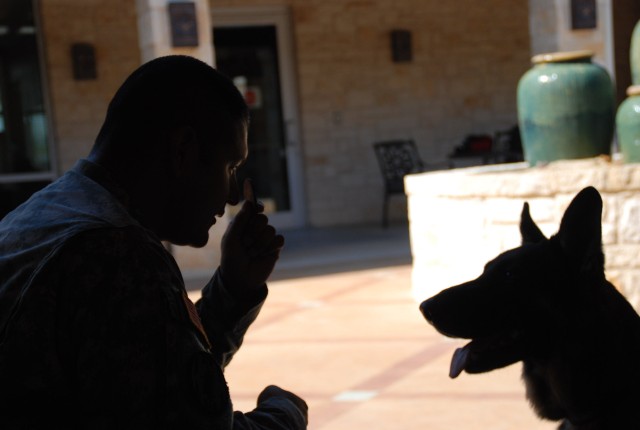
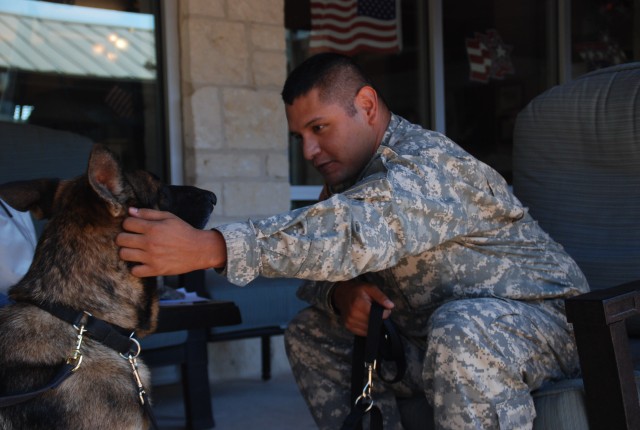
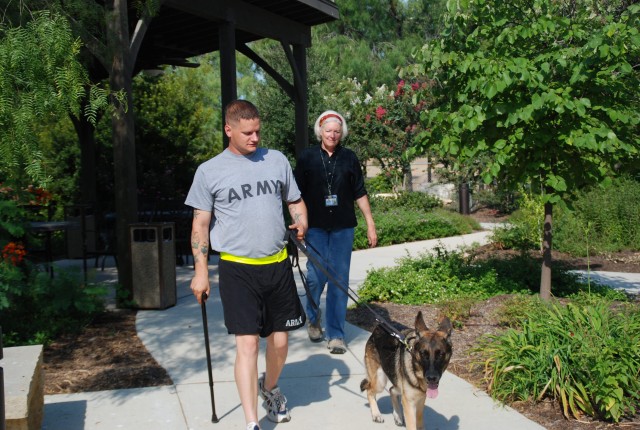
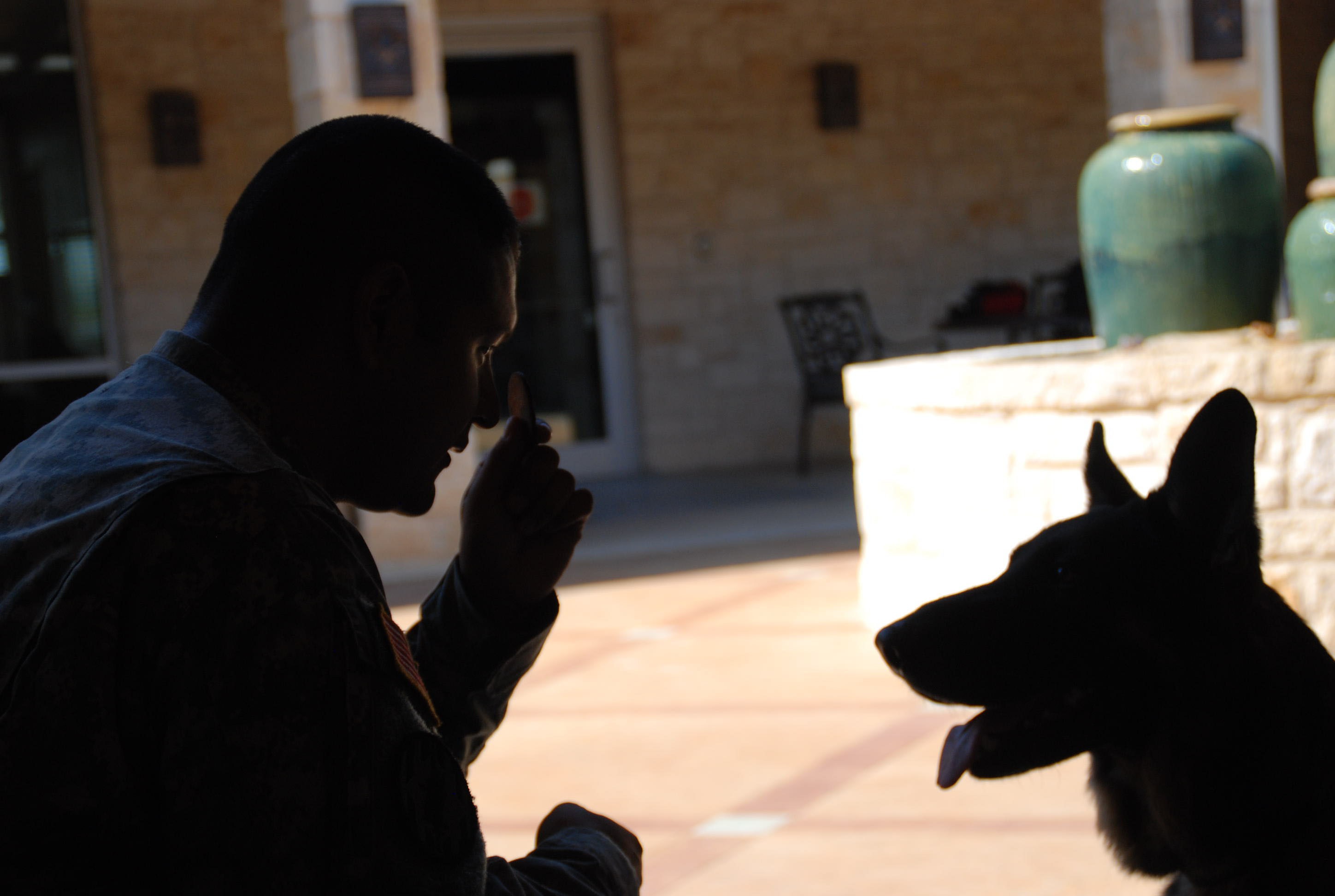
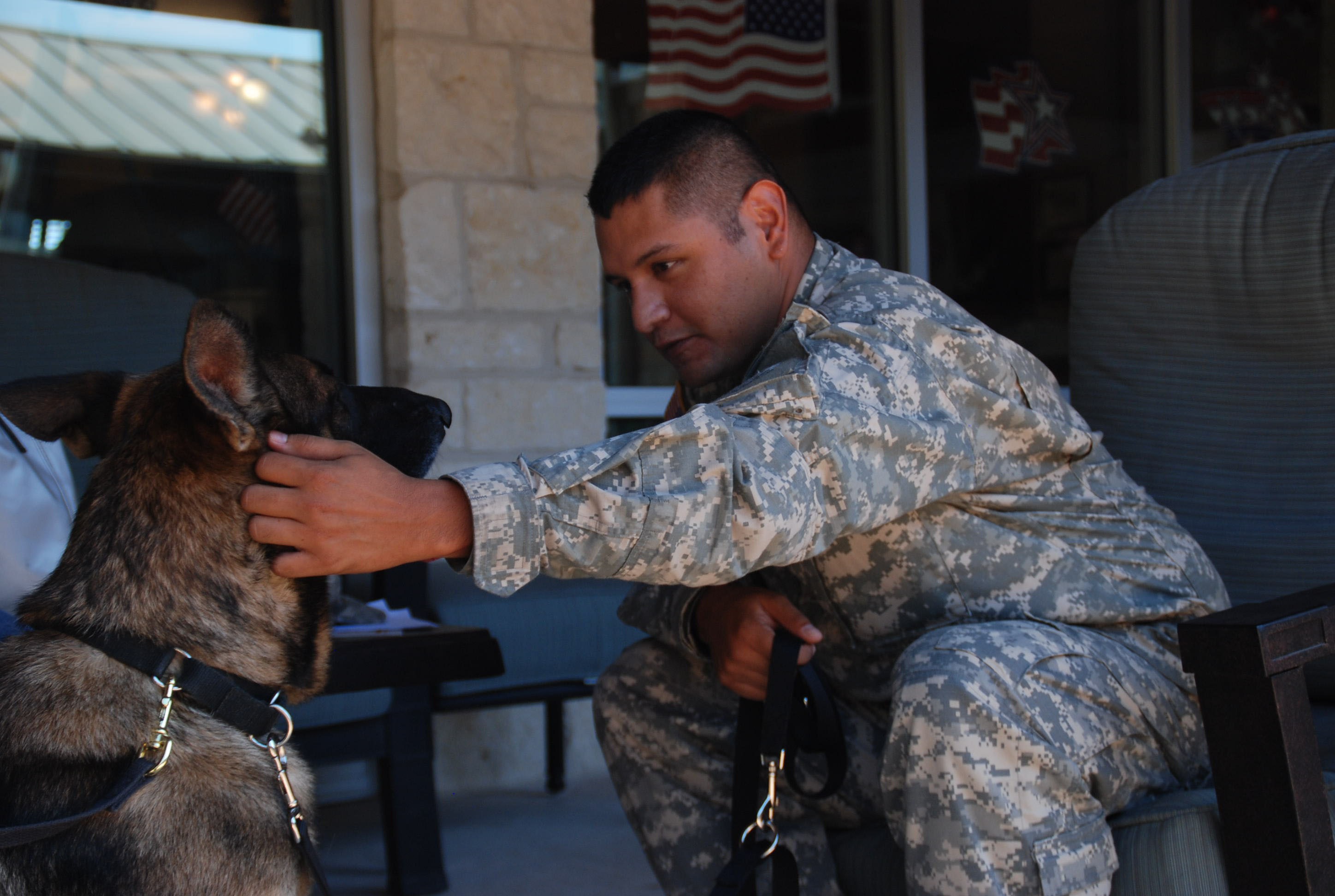
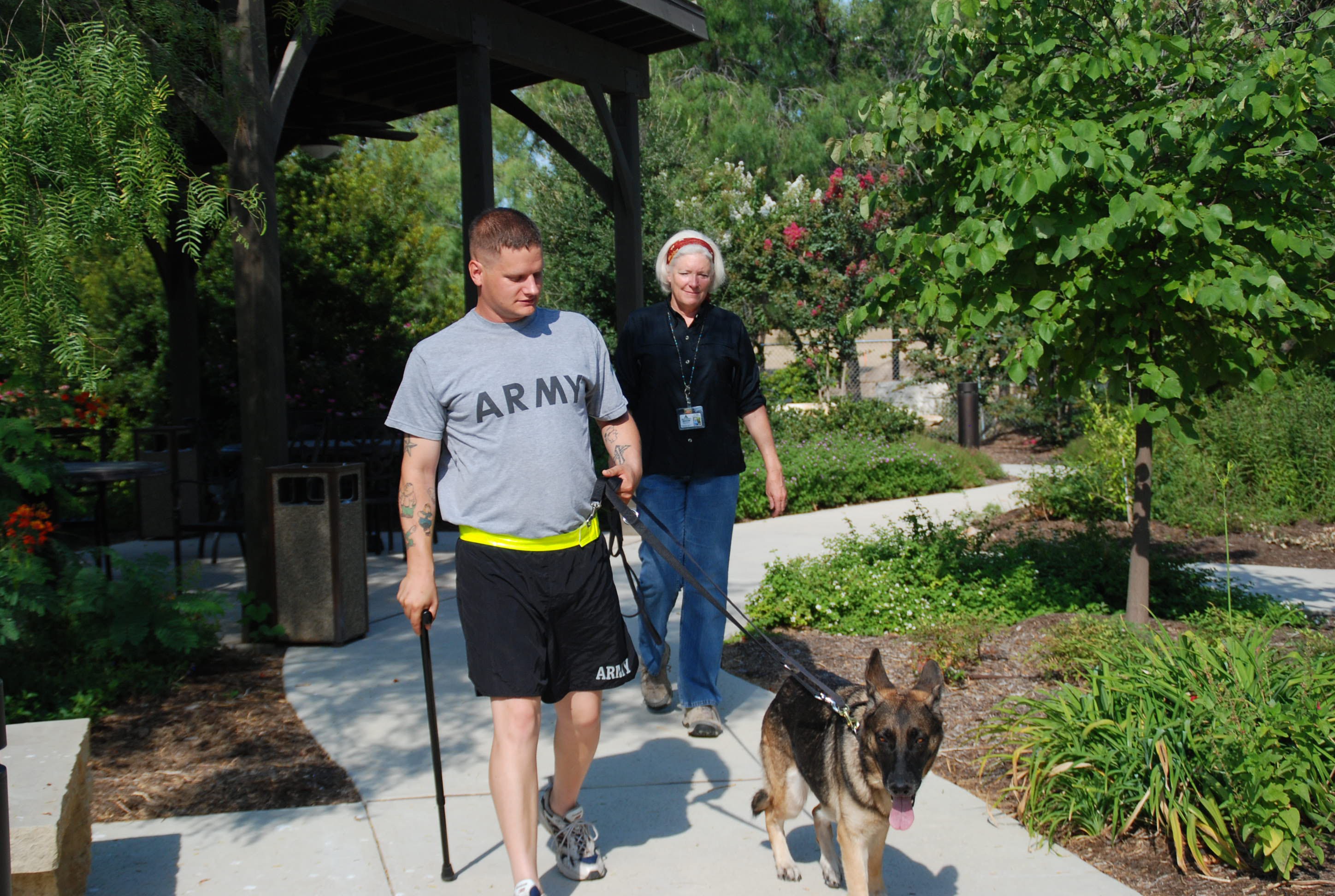
Social Sharing